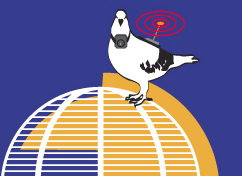biotechnology, wetware, genomics, instruction, ethics, hacking Wetware Hackers Discussed is a responsive/reflective discussion of Hands-On How-To Workshops on Biotech Art and Wet Lab Procedures. In addition to the issues of using biotech within an art practice, teaching biotech procedures presents additional issues that differ from teaching within an electronic/computational paradigm. The panel will generate, problemmatize, discuss and record observations of informal biotech instruction, specifically responding to the Wetware Hackers ISEA2006 workshop conducted by the panelists.
Abstract Wetware Hackers Discussed: A responsive/reflective discussion of Hands-On How-To Workshops on Biotech Art and Wet Lab Procedures. This discussion is intended as a follow-up to the ISEA 06 workshop of the same name to take place in the context/time-frame of the ISEA Symposium. Workshop Description and Rationale:
Over the past 20 years, biotechnology has revolutionized the pharmaceutical industry, the agricultural industry and the field of animal and human medicine. As such, its impacts on life are tremendous and biotechnology implementations direct areas such food production and consumption, global trade agreements, human and animal reproduction, environmental concerns as well as biosecurity and biodefense. The Human Genome Project, as well as other International Genome Initiatives, stimulated the merging of computational research with areas of the life sciences. Simultaneously, a number of artists originating in the field of new media art have shifted their attention from experimenting, hacking and reverse engineering digital code to similar explorations using micro-organisms and molecular biology. As an emerging media form, many of the issues are similar: How do we re-imagine cultural production with wetware as a medium and explore its full tactical and signifying potential? However, many of the wetlab procedures needed in order to conduct this type of work remain opaque and abstract to general public and artists who don’t have access to life science research facilities and expertise. "Wetware Hackers" is a series of hands-on workshops open to ISEA attendees taught by practitioners in the field. Workshops will be conducted in moderately equipped facilities (combined with DIY style laboratories/garage) and are designed for motivated non-experts. Rather than promoting only well-established techniques, "Wetware Hackers" encourages modification and play with respect to wetware projects. Discussion Description and Rationale:
The discussion is to be led by the four workshop instructors and instructor teams possibly alongside a moderator (TBD by ISEA Discussion Forum committee) for a duration of approximately 1 hour. Participants in the workshop are strongly encouraged to contribute to this debate. The rationale for its placement within the larger discussion forum time-frame is to allow for an expanded discussion with ISEA attendees who were not able to participate in the workshop. In addition to the issues of using biotech within an art practice, teaching biotech procedures does seem to present additional issues that differ from teaching within an electronic/computational paradigm. For instance, computers are built to be "abstract tools" (to simulate other tools and processes) whereas living and semi-living matter are not and as such varied procedures do not stem from a consistent, easily generalizable paradigm for "exploitation". Currently, "creativity" within this arena is neither celebrated, encouraged nor accepted in the same way as electronic media so, in addition to experimental safety and ethics, one needs to be informed about shifting legal and quasi-legal frameworks. Without being to alarmist, working with living biological materials can be dangerous to one (and one’s audience) health, in addition some practices directly deal with what can be perceived as violent, ethically questionable and as a way to normalize and domesticate new ways of exploiting and manipulating living systems. One area of biological engagement with living systems is that of cell and tissue technologies; tissue engineering, stem cell research, and therapeutic cloning all based on a technology which is almost a hundred years old. The notion of taking a body apart, maintain some of these parts (cells, tissues, organs) alive and independent form the original body is still problematic and often misunderstood. It is our expectation that a post-workshop discussion that includes instructors, participants and ISEA conference attendees is an appropriate forum to generate, problemmatize, discuss and make record of observations of informal biotech instruction. |
